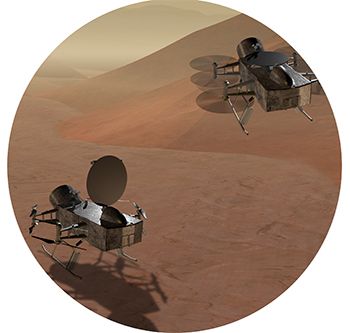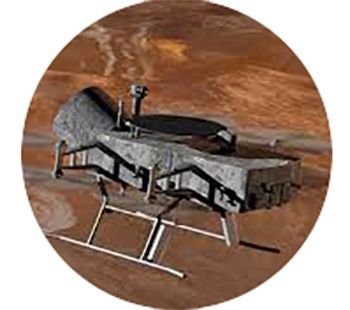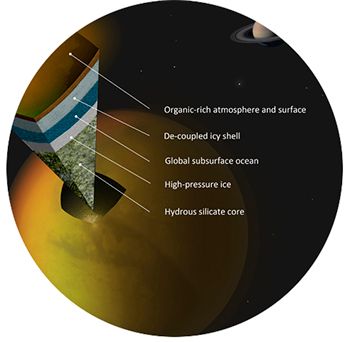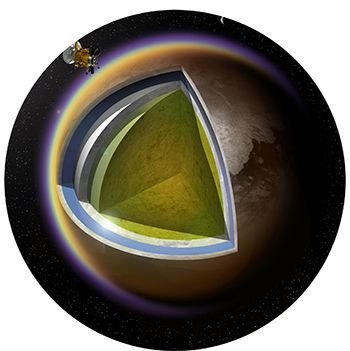Dragonfly's in Orbit Around Saturn

Spearheaded by the Johns Hopkins Applied Physics Laboratory after its conception over a dinner between Jason W. Barnes (Department of Physics, University of Idaho) and Ralph D. Lorenz (Johns Hopkins University Applied Physics Laboratory) and taking 15 months to develop into a full mission proposal, with the principle scientific investigator Elizabeth Turtle (Planetary Scientist – Johns Hopkins University Applied Physics Laboratory) being at the forefront, would see a flying mobile rotorcraft send to Saturn’s largest moon Titan.

While not yet an absolute certainty that this project will go ahead, it did make the list as one of the two finalists in in the NASA new frontiers mission proposals in December 2017, with further consideration to refine the mission project, I for one would like to think and hope, this mission is selected, if for no other reason than to give us another way to continue to study the Saturnian system, which in my opinion we should have had something in place to arrive before Cassini’s end.
I am of the position, that if we are studying any part of our solar system, we should not abandon our studies, but rather continue them, and have something in orbit around these planets at all times, but that’s just me, yes it was expensive in the past, but with the advent of re-usable rockets and CubeSats I see no reason why solar system space research cant continue on a shoestring budget, but, back to Dragonfly…

It would actually be easier for this craft to fly on Titan as opposed to Earth as Titan is 38 times less than the mass of earth meaning the gravity is far weaker, the only things to take into consideration would be the temperature which is significantly colder to say the less, as is the visible light, all the same powered by a Multi-Mission Radioisotope Thermoelectric Generator (MMRTG) during the night, converting the heat of the natural decay of the radioisotope into electricity could see this craft in service for quite some time, long after the projected mission scope of 2 years.

Great post, thanks for putting in the time and effort !
Mind blowing when you realize how fast everything is progressing and what we will be doing next. Upvoted and Resteemed by @cryptoryno33
Why dont we have satellites around ALL the planets monitoring
Great post, Kash.
Definitely return to Saturn. As for priorities, Mars should be number one, however. Elon is sinking billions into getting a colony set up on Mars, they've found huge ice packs which can be exploited and I don't think terraforming is out if the realm of possibilities within 100 years. Knowing about other planets is important despite as far as we currently know, having little utility to us (although indirectly it does).
Good read!
Nick
I think Saturn should be monitored if the technology available. So much talk of government secrecy (Roswell incident) and aliens among us, will we ever know the whole truth?
Upvoted and followed. Yes, I'm for exploring all the planets as much as we can.
Good post. Certainly not the rock post I was expecting though! :P
I remember when Cassini's mission was over. I felt it was wasteful. We should be out there a lot more than we are now. I think for as much work that NASA does, they don't give enough.
I've played a lot of Elite: Dangerous and other space simulators like No Man's Sky and Empyrion. I would love to be a miner on a galactic expedition some day.
very nice .. check out my new post if you have time :)
https://steemit.com/henna/@archu/henna-art-mehendi